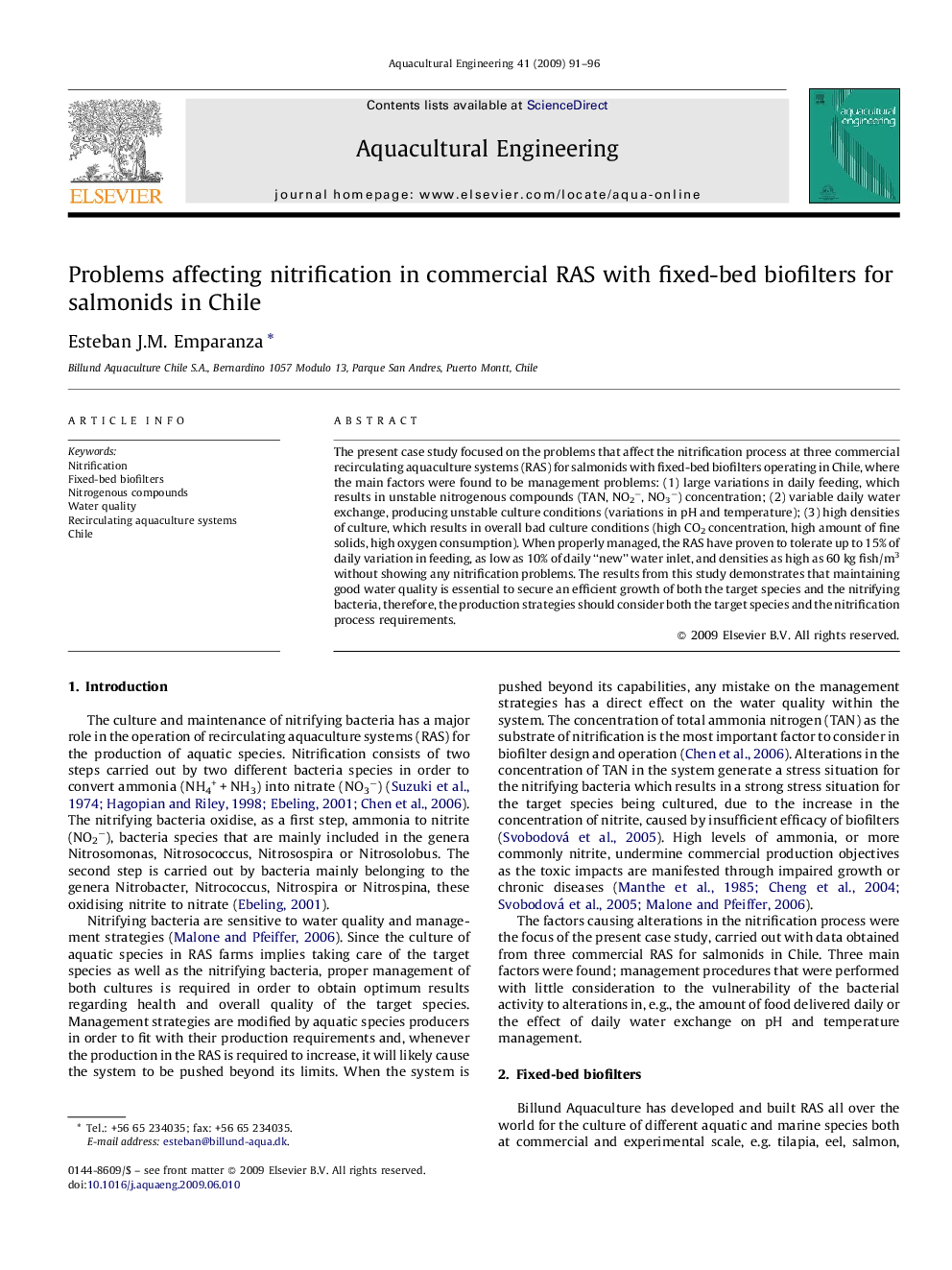| Article ID | Journal | Published Year | Pages | File Type |
|---|---|---|---|---|
| 6381507 | Aquacultural Engineering | 2009 | 6 Pages |
Abstract
The present case study focused on the problems that affect the nitrification process at three commercial recirculating aquaculture systems (RAS) for salmonids with fixed-bed biofilters operating in Chile, where the main factors were found to be management problems: (1) large variations in daily feeding, which results in unstable nitrogenous compounds (TAN, NO2â, NO3â) concentration; (2) variable daily water exchange, producing unstable culture conditions (variations in pH and temperature); (3) high densities of culture, which results in overall bad culture conditions (high CO2 concentration, high amount of fine solids, high oxygen consumption). When properly managed, the RAS have proven to tolerate up to 15% of daily variation in feeding, as low as 10% of daily “new” water inlet, and densities as high as 60 kg fish/m3 without showing any nitrification problems. The results from this study demonstrates that maintaining good water quality is essential to secure an efficient growth of both the target species and the nitrifying bacteria, therefore, the production strategies should consider both the target species and the nitrification process requirements.
Related Topics
Life Sciences
Agricultural and Biological Sciences
Aquatic Science
Authors
Esteban J.M. Emparanza,
